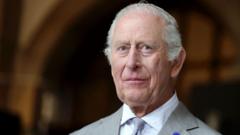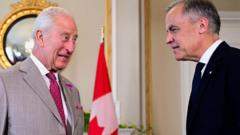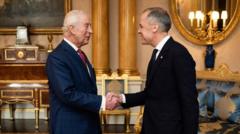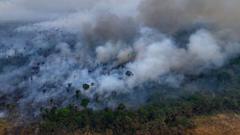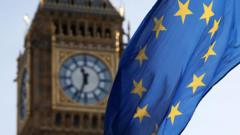The unexpected power cut during Finance Minister Mthuli Ncube's budget remarks reflected Zimbabwe's severe energy shortages, exacerbated by drought, with opposition leaders calling it indicative of the country's struggles.
Power Outage Disrupts Zimbabwe's Parliamentary Budget Address
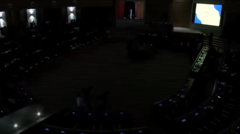
Power Outage Disrupts Zimbabwe's Parliamentary Budget Address
Zimbabwe's parliament faced a sudden blackout during a key financial speech, highlighting the nation's ongoing energy crisis.
Zimbabwe's parliamentary session was abruptly interrupted when a power outage descended upon the venue just as Finance Minister Mthuli Ncube was nearing the end of his budget speech. The sudden loss of electricity left prominent officials, including President Emmerson Mnangagwa and Vice-President Constantino Chiwenga, as well as members of parliament, in pitch darkness.
This incident is emblematic of the dire energy crisis gripping Zimbabwe, where residents are subjected to relentless power cuts lasting up to 12 hours a day. These blackouts have been attributed largely to severe drought conditions that have severely impacted energy generation at the Kariba Dam, the country's primary power source.
As the lights flickered out, opposition MPs immediately voiced their dissatisfaction, suggesting that the blackout represented a broader commentary on the nation's deteriorating circumstances. George Manyaya, a representative from the Zimbabwe Electricity Supply Authority (Zesa), later clarified that the blackout was unplanned. He noted that parliament is typically insulated from power cuts due to its own dedicated supply, but attributed this incident to a lightning strike.
Prior to the blackout, Minister Ncube had indicated the agricultural sector would suffer a contraction of 15% in the current year, a direct result of the ongoing drought. Nevertheless, he optimistically projected a 6% growth for the economy in the coming year, contingent upon predictions of above-average rainfall that could also enhance electricity supplies.
This episode serves as a stark reminder of the challenges facing Zimbabwe, where frequent power interruptions continue to affect daily life and economic stability.
This incident is emblematic of the dire energy crisis gripping Zimbabwe, where residents are subjected to relentless power cuts lasting up to 12 hours a day. These blackouts have been attributed largely to severe drought conditions that have severely impacted energy generation at the Kariba Dam, the country's primary power source.
As the lights flickered out, opposition MPs immediately voiced their dissatisfaction, suggesting that the blackout represented a broader commentary on the nation's deteriorating circumstances. George Manyaya, a representative from the Zimbabwe Electricity Supply Authority (Zesa), later clarified that the blackout was unplanned. He noted that parliament is typically insulated from power cuts due to its own dedicated supply, but attributed this incident to a lightning strike.
Prior to the blackout, Minister Ncube had indicated the agricultural sector would suffer a contraction of 15% in the current year, a direct result of the ongoing drought. Nevertheless, he optimistically projected a 6% growth for the economy in the coming year, contingent upon predictions of above-average rainfall that could also enhance electricity supplies.
This episode serves as a stark reminder of the challenges facing Zimbabwe, where frequent power interruptions continue to affect daily life and economic stability.







